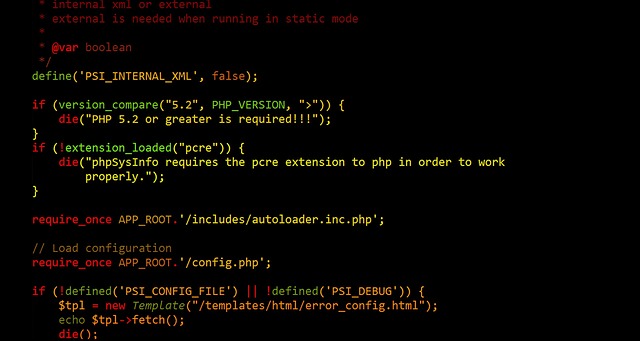Most software testers and developers are familiar with the common struggles of disagreement while trying to complete projects. Despite their differences, both of these roles are an essential part of delivering successful software products. So how do these two professions strike a balance and work together effectively?
Conflicts between software testers and developers are particularly common among start-up companies. In a recent survey by software engineer blog Stackify, it was revealed that “65% of respondents said that they had experienced personally a developer/tester conflict and that it had actually derailed projects.” This highlights the importance of understanding how best to manage testers and developers to ensure the successful completion of projects.
In this article, you will learn why it is essential to mitigate disputes between software testers and developers, and how exactly it can be accomplished. We’ll explore a range of tips on how to foster communication and collaboration between both parties, as well as how to create an open environment that promotes team work. We’ll also consider how to ensure effective testing, without placing undue pressure on resources.
With the help of these tips, businesses can avoid the negative consequences of disagreements between testers and developers, and instead collaborate in an effective and productive manner.
Definitions
It is important for software testers and developers to have an understanding of the definitions related to dispute resolution between them. A dispute between a software tester and a developer can come up when a tester discovers a bug or fault that the developer is responsible for. Conflicts can arise when trying to identify the cause of the issue and to agree on a solution. In order to avoid these disputes, it is important that both parties understand the definitions associated with software testing and development.
Software Testing is the process of ensuring that a software application works as expected by the user or customer. It requires examining every aspect of an application, from its interface to its functionality and performance. A software tester is responsible for identifying and documenting any defects or flaws that may exist within the system.
Software Development involves creating and designing software applications that are functional, reliable, and secure. Developers are responsible for creating the code and ensuring that any changes to the software are properly tested and implemented. Developers are also responsible for troubleshooting issues and providing technical assistance.
Bug or Defect is a term used to describe any issue or problem that exists in a software application. It can range from a minor issue that does not significantly affect the operation of the system to a major flaw that can lead to major disruptions or data loss.
Dispute Resolution is the process of determining how conflicts between software testers and developers should be addressed. It includes identifying the cause of the dispute, understanding the perspectives of both parties, and resolving the issue in a way that is satisfactory to both.
Understanding and following these definitions can help software testers and developers to avoid disputes and work together to create high-quality software applications.
Communicating Effectively
When it comes to communication between software testers and developers, it is essential that both parties strive to avoid disputes whenever possible. Disputes can not only cause animosity and create tensions within the workplace, but they can also lead to less-than-optimal outcomes for the project being worked on. To help prevent disputes from happening, here are some strategies that testers and developers can utilize:
Focus On Mutual Goals
Both testers and developers have the same goal – to create a high-quality product that meets customer expectations. When disputes arise, it is important for both groups to take a step back and remember that the end goal is the same. Re-focusing on the mutual goal can help bring the teams back together and make disagreements easier to resolve.
Practice Respectful Communication
The way testers and developers communicate with each other can greatly influence the success of the project. It is important for each party to practice respectful communication, even when opposing opinions are present. Keeping an open mind to different perspectives and ideas can help prevent disputes from happening, and can even lead to potential solutions that benefit the project.
Encourage Collaboration
Software testers and developers both bring unique insights to a project, and can leverage their combined knowledge to create a better product. Encouraging collaboration between the two forces can help foster a more productive team environment that minimizes disputes. Through collaboration, testers and developers can also take advantage of each other’s strengths to identify and resolve issues more efficiently.
Establish Ground Rules
Having ground rules in place is one of the best ways to avoid disputes. These ground rules should be clearly defined, and agreed upon by both testers and developers. Examples of requested behavior could include:
- Talking to each other in a respectful manner
- Validating and understanding each other’s opinions
- Notifying each other of any changes that might affect the project
- Agreeing on the scope of a project before beginning work
Establishing these kinds of rules can create a more organized atmosphere and allow everyone to work together more efficiently and harmoniously.
Understanding the Development Process
Building Rapport With Developers
One of the most important steps in avoiding disputes between software testers and developers is building rapport. This means creating relationships based on trust, clear communication, and respect. Good rapport between developers and testers allow them to work together and provide feedback to one another in an effective manner. To do this, software testers should prioritize creating a good working relationship with the developers. They should meet regularly to discuss project progress, accomplishments, and difficulties. This will help ensure that both parties are on the same page regarding the project goals and expectations.
Prioritizing Communication
In addition to creating a good working environment, software testers should also focus on communication. This includes taking the time to ask questions and provide developers with clarifying information. Testers should be sure to ask plenty of questions and confirm that the developers have understood their instructions. Doing so will avoid delays and miscommunications down the line. Software testers should also take the time to explain their feedback and why it’s needed. Explanations can help developers better understand the issue and make it easier for them to come to a resolution.
Respecting Different Perspectives
Finally, software testers should make an effort to respect the perspectives of the developers. This means being open-minded to different approaches and understanding that developers are sometimes working with limited time or resources. Respecting the developers’ perspectives can help create an environment of collaboration instead of conflict. Testers should also be sure to give developers credit for their contributions to the project. Doing so can help foster good relationships and motivate developers to do their best work.
Overall, software testers and developers must be collaborative and communicative in order to avoid disputes. Building rapport, prioritizing communication, and respecting different perspectives can help the two teams understand each other better and work together more effectively.
Fostering a Positive Relationship
Fostering a Mutual Respect
When working as a software tester, it can be difficult to maintain a constructive relationship with developers, especially when there are disagreements about the quality of a product. In order to ensure that disputes do not arise, it is important to foster a culture of mutual respect and collaboration. This involves recognizing and appreciating the unique contributions made by both members of the team. Acknowledging the skills and perspectives of both the tester and the developer can help build understanding and create a shared goal for the project.
Open Dialogue
In order to avoid disputes, it is important to create a space for open dialogue between team members. This means that all opinions and perspectives should be listened to and respected. It is important to create an atmosphere where difficult topics can be discussed and ideas can be shared. Having a discussion in an environment where all participants feel safe to express their opinions can help to bridge any gaps between tester and developer.
Another way to foster constructive dialogue is to encourage open communication. This could involve using a variety of communication methods, such as emails, forums, and face-to-face meetings. Encouraging open conversation can minimize the risk of misunderstandings or disputes. It can also help to ensure that any issues or disagreements are addressed in a timely and professional manner.
Continuous Learning
Software testing can be a complex and challenging task. It is important for both testers and developers to stay informed and updated on the latest trends in the industry. This can be done through continuous learning and professional development. For example, testers can attend conferences and seminars, read industry publications, or take classes to stay up to date on the latest software testing tools and techniques.
By providing both software testers and developers with opportunities to build their skills and knowledge, it is possible to ensure that everyone is comfortable and confident when working together. It can also lead to increased collaboration and reduced disputes between testers and developers.
Finally, it is important to create an environment where feedback is valued and encouraged. Providing feedback on the tester’s results and the developer’s coding can help to ensure that any disagreements are addressed in a respectful and constructive manner. It can also help to increase mutual understanding and create a shared purpose between the tester and the developer.
By fostering a culture of mutual respect, open dialogue, continuous learning, and feedback, it is possible to avoid disputes between software testers and developers. Working together in an atmosphere of collaboration and understanding can help to ensure the successful completion of any project.
Conclusion
Navigating software testing and development teams can be a challenging endeavor. While both sides bring valuable contributions to any project, disputes can arise as different perspectives come into play. So how can tensions between the two be avoided?
At iRevol we understand that communication is key when it comes to avoiding disputes between software testers and developers. We regularly share the latest posts and articles on how to stay open to communication and foster understanding between teams. To stay up-to-date, be sure to follow us here and on social media. Furthermore, we are always looking for new releases that can help these teams work together in harmony.
FAQs:
Q: How can I prevent disputes between testers and developers?
A: The best way to avoid disputes between testers and developers is to maintain good communication. Make sure to approach discussions openly and with respect. Additionally, set expectations and deadlines clearly, and try to accommodate the other team when changes occur.
Q: Is there anything else I should be aware of?
A: Understanding the other team’s perspective can be an important factor in preventing disputes. Knowing the workflows and processes of your own and the other teams will help to foster collaboration and make it easier to collaborate together.
Q: What can I do if a dispute does occur?
A: If a dispute does occur, make sure to remain civil and try to alleviate tensions. Address the issue as soon as possible and attempt to come to a resolution together. If needed, involve a mediator or leader to assist with the process.
Q: Are there any tools or platforms available to make the process easier?
A: There are a variety of tools and platforms available to foster better communication and collaboration between teams. For example, communication tools like Slack, project management tools like Asana, or version control tools like GitHub can be used to streamline the process.
Q: What is the best way to stay up-to-date on the topic?
A: To stay up-to-date on the topic, consider following us here or on social media for the latest posts and articles. Additionally, keep an eye out for new releases that could help foster better collaboration between the two teams.



